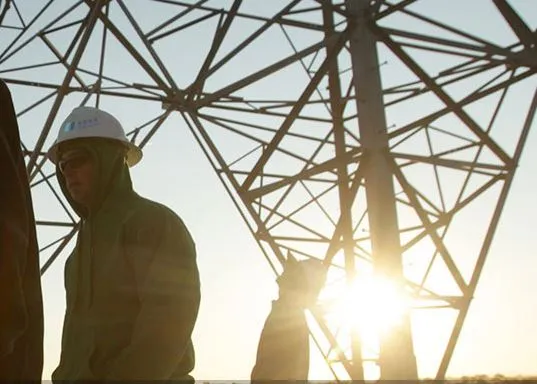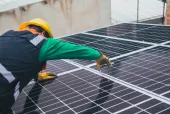
How Southeast Asia is slipping out of its bankability bind
The privatisation trend, in particular, holds promise in the near to mid-term horizon, says KPMG partner.
If there was any doubt that Southeast Asia was serious about attracting larger investments to its power sector, one only needs to look at the workarounds governments in the region have been developing to address bankability issues - from Indonesia setting up an infrastructure guarantee fund, to Singapore’s exploration of take-out financing, to the rising trend of privatisation of assets. Analysts reckon that these efforts, combined with attempts by investors to recalibrate their expectations on project returns, are helping to open up the market for the kind of large-scale investments the region needs to reach its ambitious targets, which includes ramping up electrification and diversifying into renewables.
The privatisation trend, in particular, holds promise in the near to mid-term horizon, according to Sharad Somani, partner, global infrastructure advisory at KPMG, of the privatisation trend.
“I think a lot of governments in the region, particularly Indonesia, has recognized that greenfield projects take a long time, and it's a dampener on the spirit of investment by the private sector,” he said. “What they are proposing is they are offering a few projects from PLN or the road sector, all the sectors, effectively privatizing existing assets which are easy to fund because you know the operational track record is immediately generating funds. And that to my mind will be a great opportunity for all investors and lenders in the next three to five years.”
Somani reckoned that the efforts by Southeast Asian governments to address bankability are far from perfect, but these are helping to drum up interest among investors who would otherwise completely write off the region due to red flags such as long project times and relatively high risks.
"I don't think that's a complete solution, but it's a good start," said Somani of the Indonesian Infrastructure Guarantee Fund. He reckoned that without the initiative, investors would be less comfortable to invest - a challenge that resonates across the Southeast Asian region where "most of the projects don't have a very well-defined path to development." The Central Java IPP project in Indonesia, for example, took around five years from conceptualisation to financial close. “This is something which very few investors have an appetite to wait for," said Somani.
If Southeast Asia were serious about attracting significant financing for larger projects beyond the usual line-up of export credit agencies, or ECAs, it would need to think out of the box - and some governments are doing just that, Somani noted.
"There is a newer entity which has been set up. It's a guarantee and investment facility which has been set up in the Philippines through the Association of Southeast Asian Nations, plus three governments,” he said. “And the idea is to guarantee issuance of local currency bonds for projects. Now, that's one market that has been totally untapped in the region, where there is no capital market support for infrastructure," said Somani.
"There are no institutional investors who are supporting infrastructure financing. So, the pool of financing available for infrastructure projects is only for commercial banks and ECAs, Exim banks. Once you open the tap from insurance companies, institutional investors, private equity houses, infrastructure funds and capital markets, I think that will be a huge boost to the infrastructure financing," he added.
Addressing bankability issues is critical for Southeast Asia as gas buyers in Japan look to place the gas they have over-contracted in destinations, particularly Southeast Asia, said Tim Rockell, director, Global Energy Institute for KPMG. Other investors are keen to enter the scene, but are not in a rush; instead, they take time to evaluate each project’s bankability, and barring that, its other merits.
“We know that there's money out there, but the projects aren't always bankable, so different funders are looking for different things from these projects and that's something we've been working with pension funds to private equity on," said Rockell.
Part of that conversation with investors, Somani said, is a recalibration of expectations since despite the prevailing low interest rate environment in the last few years, many equity investors have not budged on their preferred returns.
"We have worked on a few projects and we closed three projects in the Middle East recently and most of these projects closed a single digit return for equity investors, which effectively means that if the project is reasonably certain, the technology is reasonably established and risks are contained, you can't expect super normal returns in those projects," said Somani.
“So, effectively, when we talk to private equity houses and infrastructure funds, we are actually suggesting to them that if the project is certain and risks are contained, we may have to recalibrate our equity return expectations, and that's the only way you can get into projects," he added.













 Advertise
Advertise











